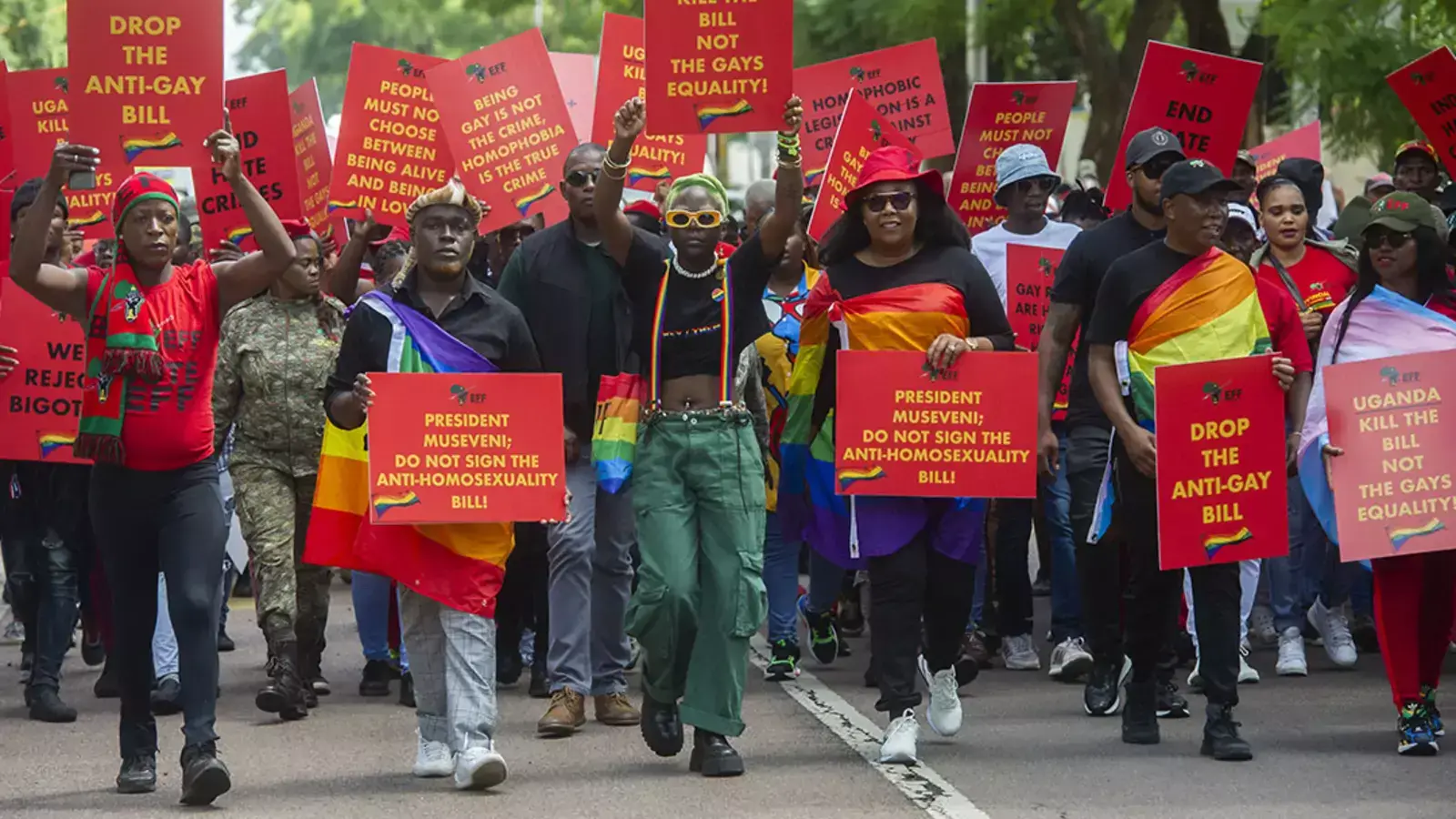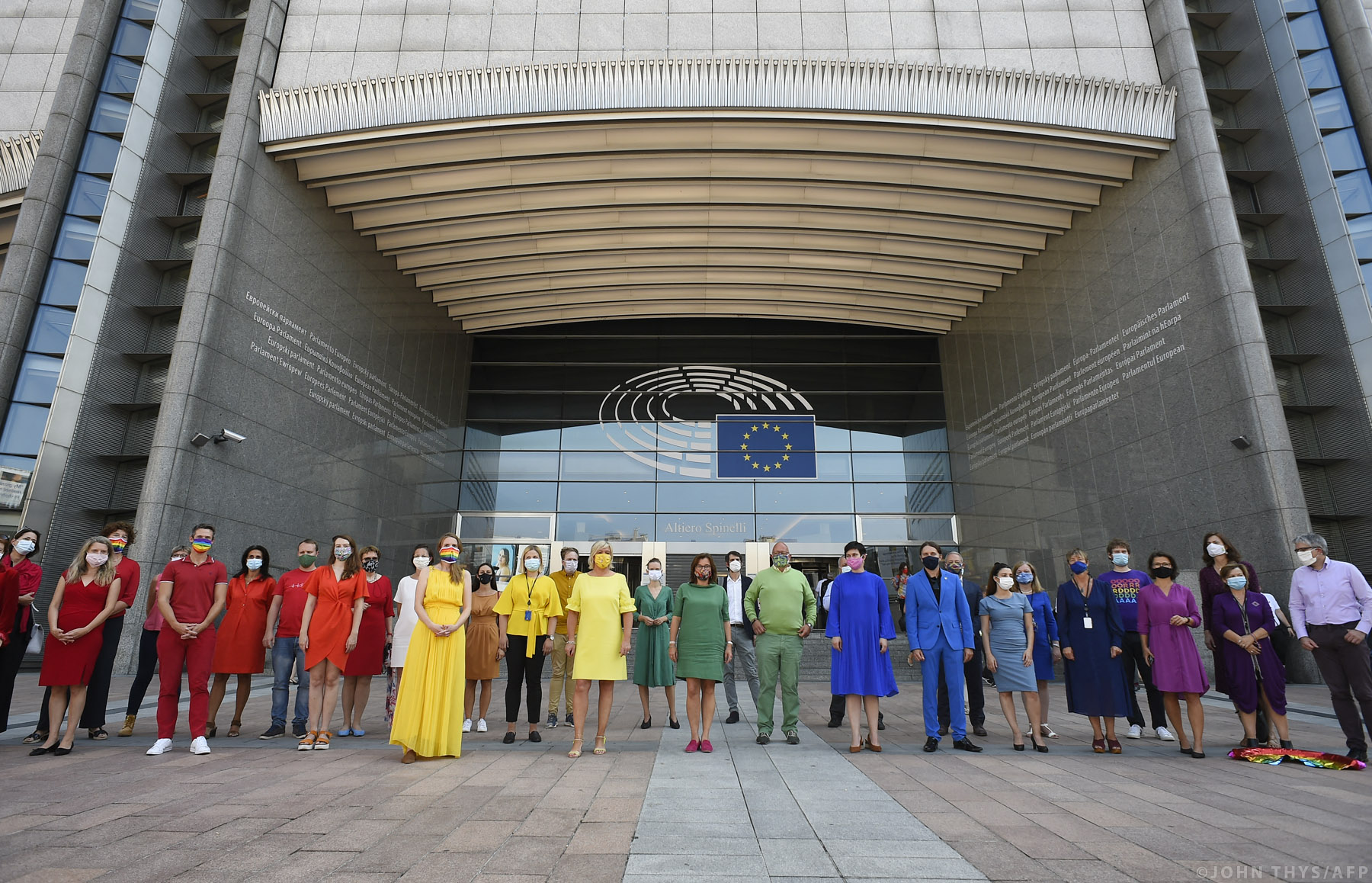The answer of the Netherlands on the anti lbgt laws in Africa
Question 1 Are you familiar with the reports from the NOS about the proposed anti-LGBTI law in Ghana [1]?
Answer
Yes.
Question 2 Do you believe that the proposed legislation in Ghana is at odds with Dutch norms and values and the goals that the ministry has for it on the area of minority protection?
Answer
Yes, this development is at odds with what the Netherlands stands for as described in human rights policy, as well as on the principles of feminist foreign policy. The government is committed to feminist foreign policy to reduce inequality and strives for equal status worldwide men, women and non-binary people. It pays special attention to this for the position of lhbtiq+ persons.
Question 3 Have you already expressed your concerns about the new anti-LHBTI law through diplomatic channels in Ghana?
Answer
Yes. The Netherlands and Ghana have good bilateral relations, which means that there is room to put on the agenda all kinds of topics of mutual interest, such as our international obligations. In that context, there is regular dialogue on human rights and protection of minorities in general and also specifically in this context proposed law, both bilaterally and together with like-minded countries. The Netherlands mainly works with other countries in an Equal Rights Coalition context, as well with other like-minded countries and international organizations.
Wherever the bill is opportunely discussed with the parties most concerned,for example with parliamentarians who support the proposal, the chairman of the parliament and authorities such as the Minister of Justice. In an EU context, for example during the annual Ghana-EU partnership dialogue, the concerns about the anti-LGBTQI+ bill also discussed with the Ghanaian authorities.
The Netherlands also made the recommendation last January in the Human Rights Council to the Ghanaian authorities to protect every individual against violence and discrimination based on sexual orientation and gender identity.
Question 4 Can you provide an overview of the development funding that the Netherlands spends in Ghana?
Answer
The bilateral relationship between the Netherlands and Ghana is dominated by the transition towards a more intensive trade relationship. Ghana therefore belongs to the category combination countries, in which the government is focusing on a combination of trade and development cooperation. The Netherlands annually invests around €10 million in projects in the private sector and the labor market. Through multilateral and civil society organizations, an additional €16 million in BHOS resources will be deployed on themes such as SRHR and HIV/AIDS, women's rights and gender equality, civil society and education. The Dutch embassy in Ghana spends an additional €425,000 annually on project financing in the field of human rights.Question 5 Can you provide an overview of which programs the Dutch government is involved in?concerned with law enforcement in Ghana?
Answer
The Netherlands has no programs related to law enforcement in Ghana.
Question 6 Do you believe, in response to news coverage of the recently adopted anti-LGBTI law in Uganda, that the Dutch government should play a proactive role play in expressing dissatisfaction with the proposed legislation in Ghana?
“nothing about them without them”
Yes and we do. The Netherlands plays together with international partners, including members of the Equal Rights Coalition, have long been active in it improving the position of LGBTIQ+ people in Ghana and expressing concerns about such legislation. This is of course the interests, the safety and the well-being of the LGBTQ+ community in Ghana comes first (“nothing about them without them”). Due to the vulnerable position of LGBTQ+ people in Ghana, the sensitivity of the subject, the autonomy of the Ghanaian parliament, and the sharp public debate, the cabinet is constantly looking at what support and approach will benefit the LGBTIQ+ community in Ghana the most. Local LGBTQ+ organizations request the Netherlands, in view of the above considerations to use silent diplomacy and not to make public statements.
Question 7 Are you willing to work with like-minded countries such as the United States and partners in the European Union, put more pressure on Ghana and other developing countries that are introducing or dealing with similar legislation?
Yes. The Netherlands prefers to work with like-minded people on similar issuescountries and organizations. This not only leads to a stronger signal but stimulates also a coherent response from donors.
Question 8 Do you believe that OS resources should be used as leverage to achieve this
kind of legislation?
Question 9 Do you believe that all OS resources should be stopped immediately if
the Ghanaian parliament passes this law?
 |
| Protesters picket against Uganda’s anti-gay bill at the Uganda High Commission in Pretoria, South Africa. Alet Pretorius/Gallo Images/Getty Images |
Question 10 Do you agree that the development of increasingly strict anti-LGBTI laws inAfrican countries is a worrying development that is at odds with the Dutch one OS targets? If so, is there a plan of action to respond appropriately and quickly this development?
Yes, LGBTIQ+ individuals and organizations worldwide are confronted with increasing restrictions, also in an increasing number of African countries. This is a very worrying development. In addition to the growing number of countries that legislate proposes to silence lhbtiq+ organizations, a number of them are acting governments against support from abroad for equal rights for lhbtiq+-persons. For example, in the (currently) 67 countries where consensual sexual relationships between persons of the same sex, or different gender identities, are punishable be made.
On the African continent there is a trend of anti-LGBTIQ+ legislative initiatives, where developments in different countries coincide to influence. The recently passed “Anti-Homosexuality Act” in Uganda is already cited as an 'example' by various parliamentarians in a few other countries.
The Netherlands is closely following these developments through our embassies, in coordination with like-minded countries (including through the Equal Rights Coalition) and through contacts with civil society. In doing so, the cabinet assembles with our partners in the different tools that we have at our disposal to have. Through strategic partnerships, LGBTIQ+ organizations in various African countries supported2, both financially and through capacity building and with diplomacy
As a major donor to the Global Equality Fund, the Netherlands also contributes emergency support for lgbtiq+ human rights defenders. In addition, this year Safety for Voices (2023-2027) started, with which human rights defenders, journalists and media workers online and offline be protected. These instruments are also available for LGBTIQ+ human rights activists and journalists who report on LGBTQ+ issues on the African continent. In addition, our embassies in these countries are committed to lgbtiq+ human rights defenders, for example through direct project financing, offering a safe space and by bringing together parties that allies of the LGBTQ+ community.
Question 11 Can you explain with which countries the Netherlands maintains an OS relationship and where at the same time anti-LHBTI laws are in force or will be introduced soon?
Question 12
Do you agree that there should be a difference in the strategic choices that the Netherlands
makes when it comes to Dutch tax money or otherwise equivalent trade relations?
The government expects all Dutch companOECD Guidelines for Multinational Enterprisesies to aply exercise due care in line with the OECD Guidelines for Multinational Enterprises.If there is any use of trade and financing instruments
Question 13
How will the Netherlands ensure that we counter the trend of more hatred in Africa?
Fighting LGBTIs?
Or by pointing out the consequences for the investment climate and the international business community, which also has a responsibility towards the own LGBTIQ+ employees, as Convening for Equality has done. Finally, we look at how southern countries with a more positive track record on lhbtiq+ can play a promoting role in preventing further continuation of the negative trend.






Comments
Post a Comment